Don’t panic
Eight percent of teenagers have a medically diagnosed anxiety disorder. Alyssa Skala ‘21 shares her experiences dealing with anxiety and its effects on her daily life.
At the beginning of Spanish class, my stomach felt queasy. I was nervous, I didn’t want to give a presentation, especially in another language. The teacher required us go in alphabetical order by last name, and although I was at the end of the list I still couldn’t shake away my anxious feeling. The closer we got to the end of the alphabet, my heart raced faster and faster. It felt as if I was being forced to hold my breath.
“Skala,” the teacher said, calling me to the front of the room.
Many people see these panic attacks as “overreacting,” but it is much more serious.
My legs were shaking uncontrollably. I got out of my seat and started to make my way to the front of the room. With each step, my shaking intensified. When I finally reached the front of the room and faced all my classmates, I froze. I started to feel tears rolling down my face. I ran out as fast as I could, not returning to class that day.
That was the first time I had a panic attack.
After that day in Spanish, they continued regularly.
A panic attack is a sudden feeling of overwhelming anxiety that can last anywhere from five to 30 minutes. Few people experience a panic attack exactly the same way.
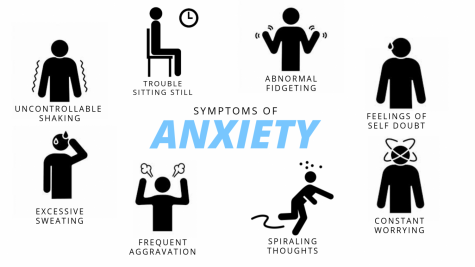
Having a panic attack is a really scary experience. Normally, I have at least one panic attack a month, and these attacks are never exactly the same. A variety of things can trigger panic attacks. Things such as losing a loved one, fear of something, standing in front of a crowd and even having a serious conversation with your parents can act as triggers.
People can have many or few triggers. I usually get my triggers in school before a presentation or test. I experience a range of symptoms including faster breathing, chest tightness and I sweat profusely. Many people see these panic attacks as “overreacting,” but it is much more serious.
Many teenagers who experience panic attacks avoid everyday events that are important. For example, when I go to the mall with my friends I rarely order my own food or talk to workers in a store. This is a problem because I can’t shop on my own, or get food without a family member or friend.
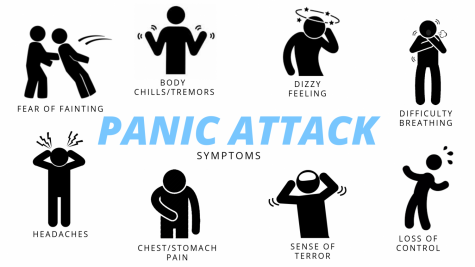
While it’s common for most students to be flooded with worries about tests, lectures and homework, it’s different for someone with anxiety. For many anxious students, the struggle reaches far beyond studying, paying attention and having the energy to do the assigned homework.
The differences between worrying and anxiety are usually distinguishable. Worrying about something occurs once or twice, while anxiety is more constant.
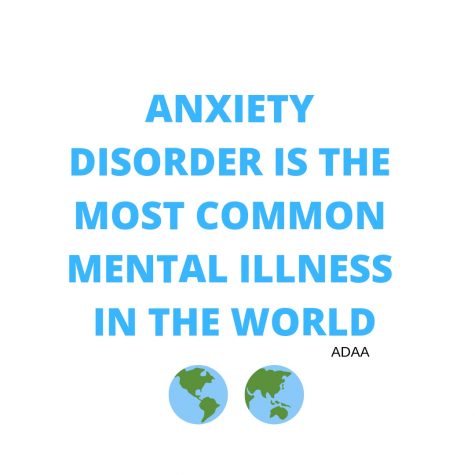
I used to come home every night thinking, “I have so much stuff to do, but I can’t do it all, I just don’t have enough time.” This thought got my mind racing and my anxiety amped to the highest notch. As these thoughts consumed me, my time to complete given tasks dwindled, ultimately turning into more unwanted anxiety.
Eventually, I learned to stop telling myself I couldn’t do everything I needed to do. This was a hard process, and it took me a couple of months to finally get to the point where I could sit down and do work.
Organizing myself helped the coping process a lot. First, I invested in a standing desk, for times when sitting still was a problem. I also cleared the space on my desk so that the only things on it are non-distracting and school related. Secondly, I bought a planner. Planners are a huge help to write down assignments and plan ahead for tests. Ultimately, my anxiety at home is easier to control than it is when I’m at school.
For me, when a teacher stands in front of the class giving a somewhat boring lecture, my brain wanders. When I get bored I start to look around the room, thinking about what’s around me. For example, we were taking a test in math and I noticed the calendar on the wall beside me was displaying the wrong month. I looked at it forever thinking about why it was still on November, not December. It drove me crazy all period. I would keep trying to focus on my test, but I was so nervous about failing that I tried to distract myself.
Anxiety affects me everywhere. I cope with this anxiety in a variety of different ways. Different types of therapy are a huge help.
At first, I thought that DBT was a waste of my time, but I eventually realized how much it was helping me with my encounters with anxiety.
Most of the tricks I know come from Dialectical Behavioral Therapy (DBT). The DBT group therapy I went to met at the University of Iowa Hospital. Even though it was helpful for me, I had to quit going a year ago because of scheduling.
DBT at the University of Iowa is offered every weekday except Friday, from 4 p.m. to 5 p.m. Attendants go one day a week, for eight weeks straight. When I first started going, I was in seventh grade. Ironically, going somewhere to talk about anxiety made me feel even more anxious.
When I opened the door everyone stared at me because I was new and I didn’t know anyone. The room was small with a long table and many chairs surrounding it. There were three open seats; I picked the one closest to the door. My reason for sitting in this seat was because it made for an easy escape.
At first, I thought that DBT was a waste of my time, but I eventually realized how much it was helping me with my encounters with anxiety.
Of the six or seven doctors I’ve seen, most recommend therapy and not medication. A lot of the time patients can manage anxiety with different types of therapies. However, sometimes this anxiety is too much to handle, and people need that extra push of help they get from medication. Prior to a month ago I wasn’t taking any type of medication, but now I have started on Buspar.
So far it has been a positive experience while giving presentations and taking tests, but that doesn’t mean there aren’t noticeable side effects. I have started sleeping more often than usual, taking a nap when I get home from school. These snooze sessions have taken away from my time for studying and completing homework.
It’s a shame that people think of it anxiety as “over-reacting” and “only in your head.” I hope that by sharing my story people will understand the struggles that anxiety puts people through in everyday life.
Your donation will support the student journalists of West High School. Your contribution will allow us to purchase Scholarship Yearbooks, newsroom equipment and cover our annual website hosting costs.

(she/her) Alyssa Skala is a senior at West. She is a third year photographer on staff and a second year editor for yearbook. When she doesn't have her...



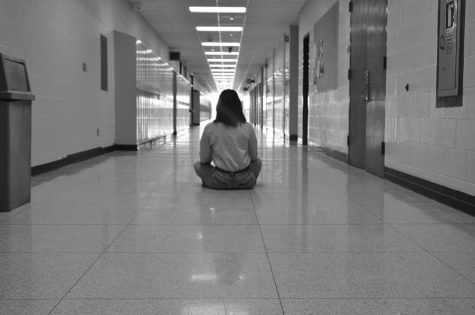


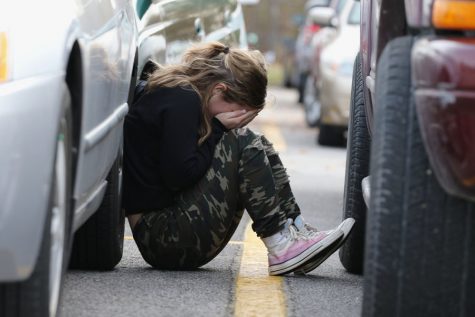
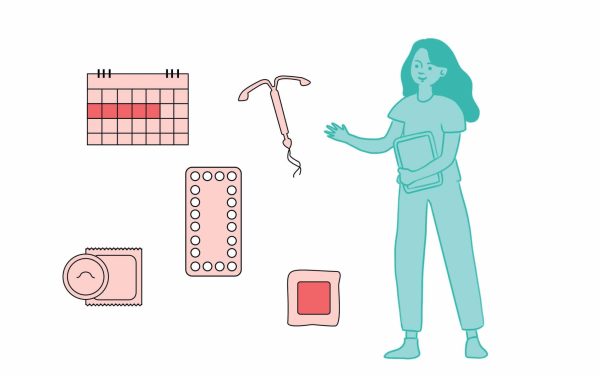
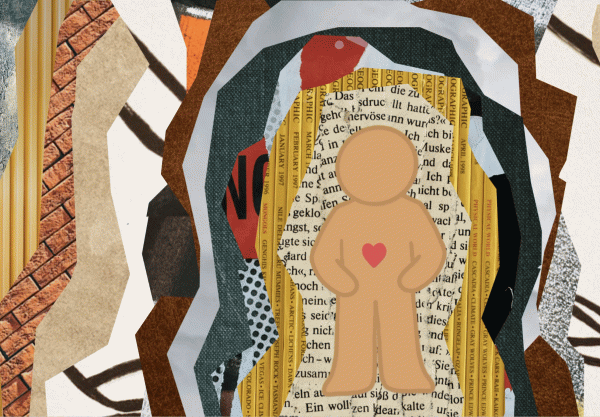

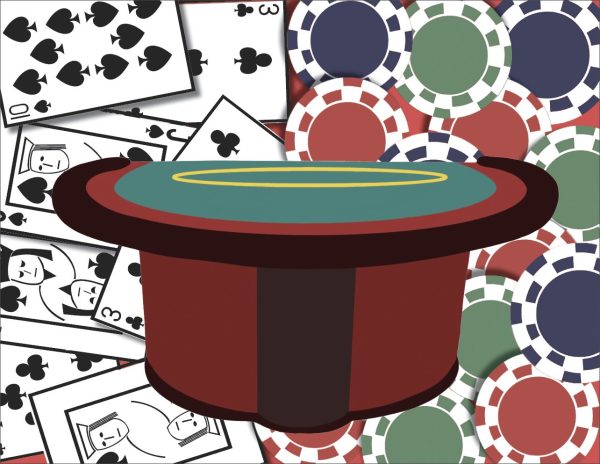
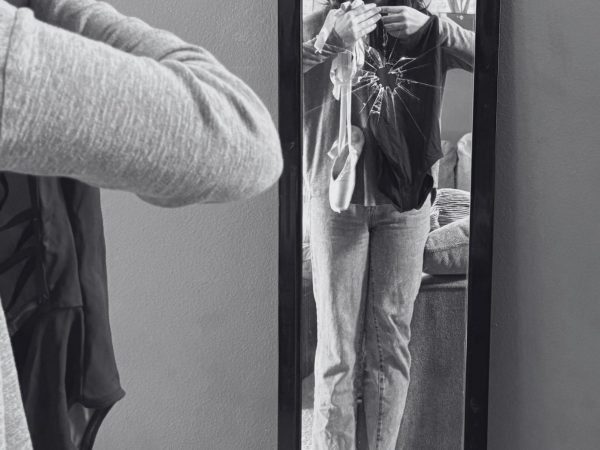




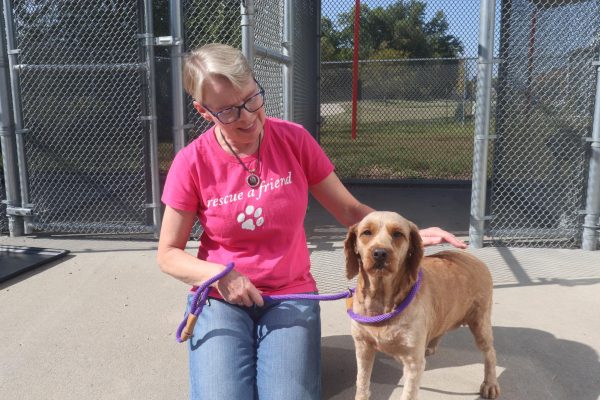

Lauren Parsons • Mar 28, 2019 at 6:05 pm
This is very well written. I’m so proud of your for sharing your story! Sharing our stories about mental health is the best way to let everyone know they are not alone.
-Lauren Parsons